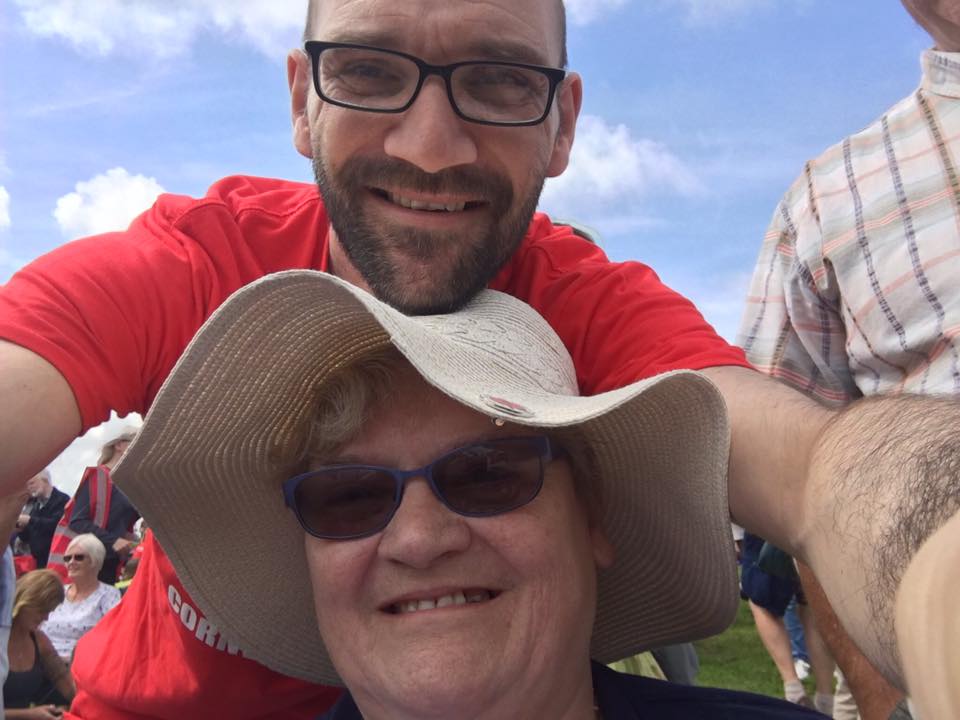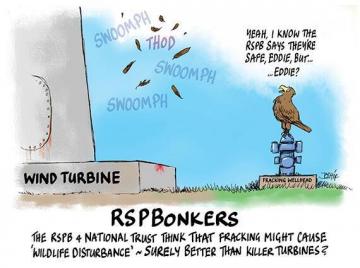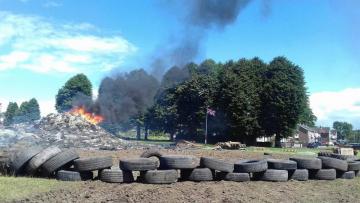Orgreave – Who gave the the orders?
By Nick Clarke
The catalyst for the miners dispute of 1984 – 85 was the unannounced closure of 5 pits in March 1984 where no proper review had taken place. These strikes had the support of the National Union of Mineworkers (NUM), they requested other areas to support those affected pits.
Unlike the earlier dispute in 1981, the government were prepared for the fight and used all the resources at their disposal; MI5, Special Branch, GCHQ and the Police who were drafted in from all areas of the country to the mining communities and coalfields to become Thatchers shock troops in the fight to break the NUM in particular and the trade union movement in general.
Thatcher had never forgiven the mine workers and the NUM for the strikes of 1972 and 1974 which had ultimately led to the downfall of Ted Heaths government and was determined to exact revenge.
The strike lasted from March 1984 to March 1985, events were shown nightly on the news bulletins. The most infamous event was the Police operation at Orgeave near Rotherham in South Yorkshire on June 18th 1984.
Miners had gathered at Orgreave to picket lorry drivers who were transporting coke to the steel industry. They were met by Police Officers from across the country who were under the command of South Yorkshire Police, (the same force and senior officers who were involved in the Hillsborough tragedy). The Police ranks included 42 mounted Police Officers and units who the first in the UK to use short shields and truncheons. The Police tactical manual at the time, stated “it was to incapacitate demonstrators”.
The BBC news footage of the time showed miners throwing missiles at the Police, followed by mounted Police charging at the miners and officers chasing miners and clearly seen hitting them over the head with truncheons.
The miners alleged that the Police operation had been preplanned and complained that the BBC news footage had been reversed to portray the miners throwing missiles before the Police charge rather than in a retaliatory response to the unprovoked attack by the Police.
The Police arrested 95 miners and charged them with riot an offence which carried a potential life sentence. The charges were withdrawn in July 1985 after it was established that officers, including senior command officers had colluded in fabricating evidence against the miners and all 95 were acquitted.
An IPCC report into what became known as the Battle of Orgreave concluded that the BBC had indeed reversed the footage of the days events and that a team of detectives had dictated the opening and closing paragraphs of at least 40 junior officers statements. The BBC have never officially accepted the IPCC report.
It is worth noting that this is the same Police force South Yorkshire who were responsible for the policing of this particular incident and who were also implicated in the cover up after the Hillsborough disaster.
Thatcher had made it clear at the time that as she was concerned the miners were “the enemy within” and were no more than outlaws and brought the whole of the state apparatus to bear, in her governments scorched earth assault on the mining communities.
Did she give the orders for the Police to attack the miners that day or was Peter Wright the Chief Constable at the time in South Yorkshire given the green light by Thatcher.
A generation has passed since the strike but it is clear that the real enemy within was namely Thatcher and her government of the day along with the Police and state security services who were all unleashed against the miners, their families and communities who are still suffering today through lack of real and proper investment to regenerate the coalfields after their closure.
A Public Enquiry is needed to establish the truth of events that day in South Yorkshire, but so far calls for an enquiry have been resisted. Sarah Green who is deputy chair of the IPCC is on record as saying that; “these are events from more than 30 years ago and I have considered the impact such a passage of time could have on an IPCC investigation and possible outcomes”. What she really meant to say was; ‘It was a long time ago and it’s not worth investigating now as it would be too much trouble’.
Sources, Seumas Milne and David Conn – The Guardian, TUC History Online and Mark George QC – The Justice Gap
#UnityMarchUK
If you like our content please consider helping us to take back the media
https://www.gofundme.com/UnityMarchUK


